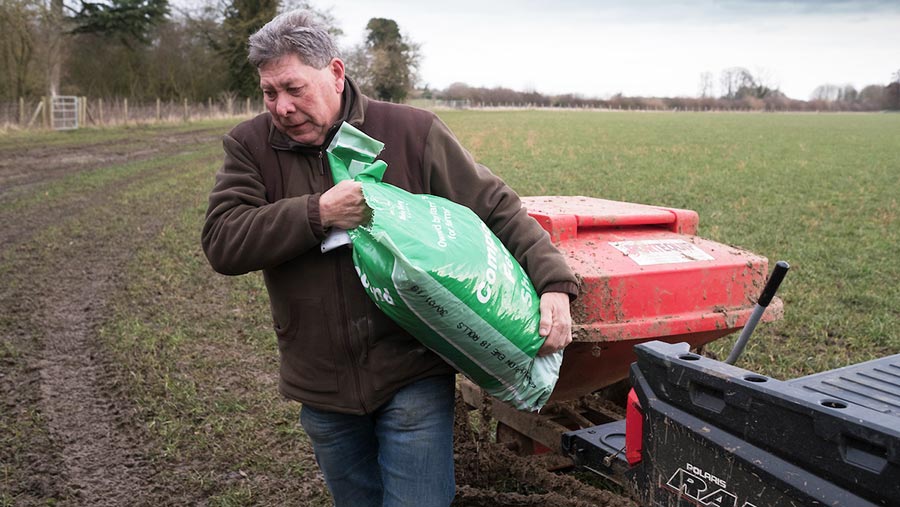Opinion: We need to get on with farming – lessons come later
 © Tim Scrivener
© Tim Scrivener What an irony that, just as the miserable weather of the past six months broke, allowing us back on the land, suddenly the country is in the grip of something much, much worse than a very wet winter.
At these times you count your blessings. The extra acres of spring drilling keep us occupied when we need a distraction.
Furthermore, unlike others, we can work safely in the isolation of our tractor cabs or out in the fresh spring air.
See also: Farmers must pull together in coronavirus crisis
Added to that is the knowledge that people are suddenly more concerned about food supplies which, in turn, gives us an increased sense of purpose.
With supermarket shelves being stripped bare, our role as food producers seems enhanced.
But while the temptation now is to talk up our own importance, we need to be careful. For starters, it is those in the medical profession, stepping up to put themselves in the front line of this terrible virus, who are the heroes, not us.
Second, at a time of national crisis it pays to silently and stoically do our bit without fanfare.
Let others come to their own conclusions about the importance of a secure supply of affordable food without us taking to our soapboxes shouting, “we told you so”.
There are lessons here from the last two times we had similar challenges as a nation.
During the First World War, despite the fact that food was a key to the war effort, farmers came out of it with a slightly tarnished reputation that they had profited from higher prices.
This PR setback was one reason why, after the war, politicians were prepared to once more sacrifice home agriculture on the altar of free trade.
It may be ill-advised to try to make political capital from concerns about food supplies at this time of crisis.
By the early 1920s, farming was sent back to its pre-war depression as Britain returned to importing the vast majority of its food.
The experience of the Second World War was different. Farmer leaders had learnt some PR lessons from 20 years earlier.
Christopher Neville, the NFU president in 1942, often defied the demands of his members who asked for better guaranteed prices.
He recognised it was not the time to plead a special case, but rather to show solidarity with the national war effort.
Writing in Farmers Weekly in 1942, Mr Neville reminded farmers that, due to their wartime efforts, they “have earned the goodwill of the population to an extent never attained before”.
He added: “This goodwill will be of incalculable value when the war is over and the policy of post-war agriculture is decided.”
He was right. After the war, the 1947 Agriculture Act was put in place to provide a backdrop for UK agriculture to thrive.
It is true many of us in the past have warned government that it needs to take declining home production and food security more seriously, because one day this country could face challenges that might need a vibrant domestic agriculture.
But maybe now, as this pandemic sweeps across our nation, it is the time to moderate our messages. It may be ill-advised to try to make political capital from concerns about food supplies at this time of crisis.
It is when this deadly virus has passed, rather than during its course, that we should ask what lessons were learnt.
For now, the farming community needs to simply ask what it can do to help. The politicking can wait for a better time.
